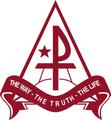Leader of Curriculum

On Friday 2nd May all year 10 students were invited to the drama room to hear about:
- NESA Requirements
- Marian Procedures around Stage 6 Subject Selection for Year 11 2026
- All My own Work
Minimum Standards
I will talk more about stage 6 subject selection at the end of this term. Presently, it is important that all year 10 complete the modules on All My Own Work and understand that Minimum Standards testing will be also occurring this month, with dates to be released soon.
All My Own Work
HSC: All My Own Work is a program designed to help HSC students follow the principles and practices of good scholarship. This includes understanding, valuing and using ethical practices when locating and using information as part of their HSC studies.
Students who have completed the program will also know about penalties for cheating and how to avoid malpractice when preparing their work for assessment.
All year 10 students wishing to enrol in the preliminary course need to complete each of the following modules by the end of the year:
Module one: What is All My Own Work?
Module Two: What is plagiarism?
Module three: How do I acknowledge other peoples work?
Module four: How can I work honestly?
Year 10 homeroom teachers will be working with year 10 to have these completed this term.
Minimum Standards
Minimum Standards have been introduced by NESA as a requirement for all students to complete to receive a Higher School Certificate credential. With this in mind, it is important that all students are informed of the process and provided with every opportunity to reach this standard.
All year 10 have been presented with the following information:
1. You need to meet the minimum standard to receive the Higher School Certificate.
To show you meet the standard you need to:
- pass the online reading test and
- pass the online writing test and
- pass the online numeracy test.
2. The Australian Core Skills Framework (ACSF) divides the standards into 4 levels.
Students must reach a minimum of level 3 to have the basic Reading, Writing and Numeracy skills needed for everyday life.
It includes skills for tasks such as:
- following safety instructions in equipment manuals
- understanding a mobile phone plan
- writing a job application
- creating a personal weekly budget.
3. Each test is 45 minutes in length
- The Reading Test involves 45 multiple choice questions
- Adaptive — meaning it tailors to a student's ability. Questions become harder or easier depending on whether a student is answering questions correctly or incorrectly.
- Marked electronically according to the achievement level descriptions
- The Numeracy Test involves 45 multiple choice questions
- Adaptive — meaning it tailors to student's ability. Questions become harder or easier depending on whether a student is answering questions correctly or incorrectly.
- Marked electronically according to the achievement level descriptions
- The Writing Test is based on a prompt
- One question based on a visual or text prompt with up to a 500 word-response
- Marked by trained markers according to the achievement level descriptions and the following, equally weighted, criteria: relevance of writing to the topic; structure and sequence of ideas and control of language
4. Students can sit the tests in:
- Year 10 (2 attempts)
- Year 11 (2 attempts)
- Year 12 (2 attempts)
- You then have a further 3 years to pass the tests after the HSC
Once you have reached level 3 in any test, you DO NOT need to sit that test again.
Regards
Mr John Seers
